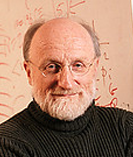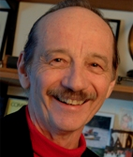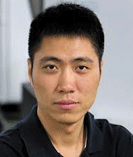Program
Friday, 11th July 2014
07:30 - 09:00
09:00 - 09:15
09:15 - 10:15
10:15 - 10:50
10:50 - 11:40
11:40 - 12:30
12:30 - 13:45
13:45 - 14:30
14:30 - 15:30
15:30 - 16:00
16:00 - 16:40
16:40 - 17:00
17:00 - 17:10
19:00 - 20:30
Registration
CAMDA Introduction and Welcome
Keynote: Temple F. Smith. The Challenge of the Evolution of the Genetic Code
Morning Coffee Break
Djork-Arné Clevert. Unweaving massive data with sparse coding PDF
Hendrik Luuk. Learning from differential expression in the Japanese Toxicogenomic Dataset PDF
Lunch break
Wenqian Zhang. Genetic features of Korean populations identified from whole genome sequencing of 35 individuals
Oleg Moskvin. Making sense of RNA-Seq data: from low-level processing to functional analysis PDF
Afternoon Coffee Break
Peter Saltzmann. Modelling Cardiovascular Risk Interventions Using Bayesian Network
Weida Tong. Sequencing quality control (SEQC) datasets
CAMDA Day 1 closes
Conference dinner - Best Lobster Dinner in Town! (See below)
Saturday, 12th July 2014
09:05 - 09:15
09:15 - 10:15
10:15 - 10:50
10:50 - 11:40
11:40 – 12:30
12:30 - 13:30
13:30 - 14:15
14:15 - 15:00
15:00 - 15:40
15:40 - 16:00
16:00 - 17:00
17:00 - 17:10
17:10 - 17:30
CAMDA Welcome
Keynote: Chris Sander. The Cancer Genome Atlas: Data to Knowledge to Action
Morning break
Jari Björne. Classification and feature selection across the ICGC Cancer Projects in the CAMDA 2014 Challenge PDF
Sinjini Sikadar. An integrative exploratory analysis of –omics data from the ICGC Cancer Genomes Lung Adenocarcinoma study PDF
Lunch break
Maciej Kańduła. A network-based prediction of pathways dysregulated in Kidney Renal Clear Cell Carcinoma (KIRC) - new insights from the integration of multiple data sources
Marinka Zitnik. Survival regression by data fusion HTML
Luz Garcia-Alonso. Analysis of the network component of the pathogenicity of mutations in 6573 different cancer patients PDF
Afternoon Coffee Break
Keynote: Jun Wang. A Million Genomes Ahead
Outlook to CAMDA 2015 in Dublin
Closing address and CAMDA contest awards
The scientific program includes keynotes by leading researchers in the field and selected presentations of contest dataset analyses.
The two-day meeting will also feature a social dinner with and opportunities for informal discussions.
The conference will close on Saturday in time for delegates to join to the evening reception of ISMB.
Sign up to our low-volume CAMDA 2014 announcements mailing list!
Keynotes
Chris Sander, PhD
Presentation Title: The Cancer Genome Atlas: Data to Knowledge to Action
Short Bio: Chris Sander is a Computational Biologist and founding chair of the Computational Biology Programme at the Memorial Sloan Kettering Cancer Center in New York City. He originally trained in physics and mathematics at the University of Berlin and obtained his PhD in theoretical physics after studying at the State University of New York, the Niels Bohr Institute in Copenhagen and the University of California, Berkeley. Sander's current research interests are in computational genomics and systems biology, with a focus on network pharmacology and the development of targeted combinatorial therapy in cancer. In collaboration with Debora Marks, his group uses evolutionary sequence information and maximum entropy statistics to discover functional interactions, infer protein fitness measures, and compute protein 3D structures, addressing Anfinsen's challenge. Sander initiated, and with Gary Bader and Emek Demir co-leads, the bioPAX and PathwayCommons community efforts to create an open-source information resource for biological pathways. In 2014, he is active in the International Cancer Genomics Consortium (ICGC), the NIH Cancer Genome Atlas Project (TCGA), the NCI Integrative Cancer Biology Program (ICBP), and in a Big Data to Knowledge to Action project to render clinical information computable in conjunction with personal genomics data. He has published more than 300 peer-reviewed articles in physics and biology with an h-index of 113. Previously, Sander co-founded a biotech startup, Millennium Information; the research section of the European Bioinformatics Institute in Cambridge, England; and was founding chair of the department of Biocomputing at the European Molecular Biology Laboratory in Heidelberg in 1986. Former students and postdocs of his in Heidelberg, Cambridge, Boston and New York are in leading positions in computational biology, including Burkhard Rost, Peer Bork, Liisa Holm, Adam Godzik, Anton Enright, Bino John, Dennis Vitkup, Sven Nelander, Erik Larsson, Reinhard Schneider, Gerrit Vriend, Nikolaus Schultz, Gary Bader and Alfonso Valencia. Sander is a Fellow of the International Society for Computational Biology.
Temple F. Smith, PhD
Presentation Title: The Challenge of the Evolution of the Genetic Code
Short Bio: Temple F. Smith is university professor in biomedical engineering. In 1981 he developed together with Michael Waterman the Smith-Waterman algorithm, which serves as the basis for multiple sequence alignments, identifying the segment with the maximum local sequence similarity. He was director of the BioMolecular Engineering Research Center at Boston University for twenty years and is now Professor Emeritus. In 1969 he obtained his PhD in the Physics Department, University of Colorado at Boulder. Consecutively, he did his Postdoctoral research in the Department of Biophysics and Genetics, University of Colorado Medical School, Boulder.
Jun Wang, PhD
Presentation Title: A Million Genomes Ahead
Abstract: While it is definitely a question whether different types of cancer have similar genomic alterations, we do not even have sufficient samples to understand a single type of cancer. Individuals with different genetic and environmental factors, such as carcinogen exposure, commensal or pathogenic bacteria and viruses, life style and mental health, all have to be sampled, both horizontally and longitudinally. The interpretation of cancer genomes relies on the scale and quality of the sequencing data, innovative handling of such big data and detailed clinical and pre-clinical information. Early and routine tests would be possible with accurate and ultra-low input next-generation sequencing technologies, which necessitate development of non-invasive sampling approaches. Each sample should be analyzed in a multi-omic fashion to be truly reliable and informative. Single-cell sequencing is necessary for elucidating the heterogeneity and reconstructing the evolution of a cancer sample. Biological investigations with optimized humanized mouse models and conditional reprogramming tumors cells would be instrumental for development and evaluation of drugs. While we envision a million ‘personalized’ cancer genomes to come, the hope is to integrate the large-scale, multi-dimensional data in order to stratify each patient or at-risk individual, for efficient diagnosis, prognosis and treatment.
Short Bio: Jun Wang is the Executive Director of the BGI (previously known as the Beijing Genomics Institute). He was instrumental in the 1999 founding and the growth of the BGI Bioinformatics Department, which is now widely recognized as one of world’s premier research facilities committed to excellence in genome sciences. Dr. Wang also holds a position as an Ole Rømer professor at the University of Copenhagen. He has authored 200+ peer-reviewed original papers – of which 73 are published in Cell, Nature (including Nature series), N Engl J Med., and Science (23 as cover story). Among those 73, Jun Wang is the first/co-first author or corresponding/co-corresponding author for 48 (13 as cover) of them. He has been recognized with an award from His Royal Highness Prince Foundation in Denmark, Nature’s 10 - the year in Science (2012); an Outstanding Science and Technology Achievement from the Chinese Academy of Sciences, Top 10 Scientific Achievements in China, and the prize for Important Innovation and Contribution from the Chinese Academy of Sciences. His research focuses on genomics and related bioinformatics analysis of complex diseases and agricultural crops, with the goal of developing applications using the genomic information.
CAMDA Dinner - New England Style
Join us for a steamed lobster dinner party!
When: July 11th, 6:30pm-8:30pm
Where: Summer Shack Boston, 50 Dalton Street Boston, MA 02115 (right next to Hynes Convention Center)
What: 3-course steamed lobster dinner
1st course: New England Creamy Clam Chowder
2nd course: steamed 1-1 1/4 lb lobster, corn on the cob, Shack coleslaw and corn bread
3rd course: chef's seasonal dessert, soda, coffee and tea included (alcohol drinks not included)


